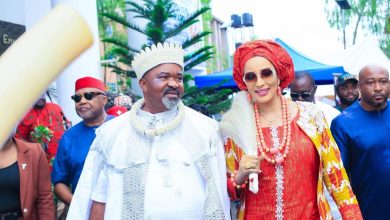
By TONY OKAFOR
The recent comments by Festus Keyamo, SAN, on the emergence of a new opposition coalition aligning with the ADC appear to rest on a contested reading of the law regarding political party membership and defection under Nigeria’s constitutional and electoral framework.
Keyamo argues that “by law, you cannot operate from, or belong to two or multiple political parties,” and concludes that the coalition’s open declaration for ADC constitutes automatic abandonment of their previous parties.
With due respect, this is a sweeping assertion not supported by law or precedent.
In Nigerian electoral jurisprudence, what determines party membership is formal registration and recognition by the party in question—not mere expressions of sympathy, ideological alignment, or coalition activities.
The Supreme Court has consistently held that defection—when it carries legal consequences—only occurs where there is clear, formal, and provable membership or candidacy under a different political party. Participation in political movements, forums, or coalitions does not meet this threshold.
Mere affiliation or support for the ADC in a coalition arrangement is not equivalent to defection, unless it is shown that individuals have formally joined the ADC by registering with the party, accepting its membership card, or contesting elections under its platform.
Keyamo’s argument further disregards relevant provisions of the 1999 Constitution (as amended), including Sections 65(2)(b), 68(1)(g), and 109(1)(g), which provide that an elected official may lose their seat only if they defect to another political party “without a division” in the party under whose platform they were elected.
Crucially, neither the Constitution nor the Electoral Act penalizes expressions of dissent or political coalition-building.
In fact, coalitions are legitimate democratic strategies, provided they do not translate into formal double membership—something both legally and administratively impossible under INEC regulations.
Across democracies, coalition politics is not only lawful but also a common mechanism for challenging entrenched incumbency and rallying fragmented opposition forces.
To treat such coalitions—especially those not fielding candidates or submitting nominations—as automatic defection is legally flawed and politically misleading.
This is political alignment, not political abandonment.
Moreover, the right to freedom of association, guaranteed under Section 40 of the 1999 Constitution, entitles Nigerians—including politicians—to freely associate for lawful political purposes. Coalition-building is one such legitimate activity.
Until the Independent National Electoral Commission (INEC) is formally notified of a change in party membership—typically through nomination documents or official party communications—no legal consequence can arise.
Electoral disqualification in Nigeria is triggered by concrete acts, not political rhetoric or speculative alignment.
If INEC has not received or confirmed such membership transfers, then no legal defection has occurred.
Keyamo’s comments, while perhaps politically convenient, stretch the boundaries of law and logic.
Coalition politics—even if unsettling to the ruling party—is neither unconstitutional nor illegal.
The movement to ADC does not constitute automatic defection from the PDP, LP, or APC, unless backed by verifiable registration or nomination under the ADC banner.
In a democracy, the rule of law—not propaganda—must prevail.




